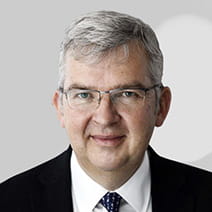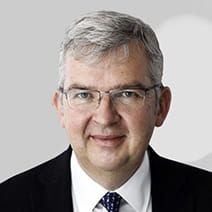- Active, risk-on stance pays off for Liontrust multi-asset funds as global markets perform strongly
- Expectations that interest rates have peaked and will be cut next year spurs change in market sentiment
- Target allocation for Japanese equities raised; US and Europe trimmed
All of the Liontrust Multi-Asset funds performed strongly and delivered positive returns during November, benefiting from their risk-on stance as global equities and bonds reversed three months of drifting lower.
The US led global equities to their biggest monthly rally in three years, but every region did well. The UK was in positive territory, but it lagged, which detracted from our performance because of our overweight to it. Stronger performance from emerging markets and Asia ex-Japan mitigated this somewhat, however. Fixed income markets were also all positive in November, albeit behind equities. Our move earlier this year to neutralise gilts and global government bonds, and to introduce a neutral high yield exposure, was well rewarded, while our overweight in investment grade corporate bonds was a benefit.
All of the funds in the Liontrust Explorer range beat their Investment Association benchmarks.
Within our regional equity blends we include an allocation to smaller companies to complement the allocations to value, growth and quality stocks. Against November’s pro-risk backdrop, smaller companies globally performed well and the strongest performers among our holdings were Artemis US Smaller Companies and Janus Henderson UK Smaller Companies. Loomis Sayles US Growth was also a strong performer.
The main factor driving the rally was expectations that interest rates in the many major markets have peaked and will be cut next year. The sentiment was given some credence by data showing that inflation in the US and eurozone was continuing to cool: latest data showed that US annual inflation fell to 3.2% in October, down from 3.7% in September.1 Eurozone headline inflation fell more than expected to 2.4% in November, significantly down from October’s figure of 2.9%.2 Despite this, ECB president Christine Lagarde has continued to warn that it is too early to declare victory in the battle against inflation, countering market expectations for the ECB to start cutting rates as early as April.3
Target allocation increased for Japanese equities
In our latest quarterly Tactical Asset Allocation review, we raised our outlook for Japanese equities, including smaller companies, from a neutral three to a positive four. Japanese equities have already rallied significantly this year, benefiting from relatively cheap valuations, a weakening currency, robust economic growth and loose monetary policy. Japan’s stock market has waited more than three decades for its moment in the sun and it continues to offer a combination of relatively attractive valuations with a positive outlook for economic growth.
We have raised our target allocation to Japanese equities while trimming those for US and European equities to fund the pro-Japanese stance. We have kept the overall targets for equities unchanged in our solutions. Within our Growth and Income portfolios, we have altered the mix of our Japanese equity allocation, too. We divested from Man GLG Japan Core Alpha and reallocated into M&G Japan. The former has delivered strong returns in 2023, buoyed by the prevailing favourability towards the value style in Japan this year, but we believe the new blend, which also includes Baillie Gifford Japan, presents a more balanced approach to risks, market cap and sector exposure within the region. M&G Japan will provide a valuable counterbalance to the quality growth approach of Baillie Gifford Japan, ensuring the portfolios benefit from a diversified stylistic mix. The changes to our Japan sleeve reflect a deliberate emphasis on increasing stock-specific risk in the region, positioning the blend to harness the opportunities of a changing macroeconomic and corporate governance backdrop.
Equities fall in Asia and emerging markets
Negative sentiment around China continues to weigh on Asia Pacific ex-Japan and emerging markets. Although China’s new finance minister Lan Fo’an announced new spending measures to boost the economy, doubts remain over the country’s budgetary firepower.4 China’s economic growth is slowing, undermining its tax revenue, while there is significant bad debt at the local government level. Meanwhile, issues in its property sector, which accounts for around 25% of the national economy, have yet to be resolved. Relations with the US also continue to be cool, despite the resumption of China’s ‘panda diplomacy’ – or donations of the cuddly creatures to American zoos – which was announced at a summit between the two countries in November.
The adoption of our new Strategic Asset Allocations (SAAs) for our funds and portfolios earlier this year resulted in raising target exposure to Asia ex-Japan and emerging markets, which has detracted slightly from performance this year. However, we continue to maintain positive outlooks on the two regions in our tactical outlook and we score them both an overweight four out of five. We believe Asia offers a relatively strong economic growth outlook, benign inflationary pressures and potential for policy easing. We believe that emerging markets also offer positive long-term fundamentals.
Following a review of our Developed Asia ex-Japan equity managers, we have brought two new funds into our Growth portfolios with the aim of enhancing the overall stylistic balance of our equity blend in the region. We sold Schroder Asian Income and Schroder Asian Total Return and replaced them with a 50-50 blend of Fidelity Asia Pacific Opportunities and Federated Hermes Asia Ex-Japan. The new blend offers a more complementary style profile, balancing Fidelity's quality growth approach with Federated Hermes' broader spectrum of value. The revised allocation is also 12 basis points cheaper on a pro rata basis for investors. The changes to our developed Asia sleeve improve the diversification benefits through lower holdings crossover and achieve a greater balance in regional and sector exposures.
Broadly neutral in fixed income
Fixed income was led higher in November by emerging market debt. US treasuries saw yields reach multi-year highs in 2023, but the two-year treasury yield fell to 4.64% late in November, its lowest level since July, as investors brought forward their expectations for the first Federal Reserve rate cuts.5 Bond prices are inversely related to yields.
In our Q4 TAA review, we maintained our broadly neutral outlook on fixed income, although we are positive on investment grade corporate bonds. Changes to our SAA earlier this year also incorporated greater target exposure to global high yield (HY), which has generally been a positive for our solutions this year amid a mild increase in the risk-on tone in markets. In November, we also implemented a new HY blend across the Growth, Income, and Dynamic Beta portfolios.
We have built strong conviction in two funds that have robust investment processes, experienced teams and are complementary. These include Barings Global High Yield and Aegon High Yield. The former has a unique approach to the HY universe by excluding the issuers in emerging markets and focusing exclusively on developed markets with a bias towards non-financial businesses. The latter has a well-resourced fixed income division and is differentiated versus its peers by its high-conviction, bottom-up security selection, index-agnostic positioning and the manager’s global approach to investing across North America, Europe and emerging markets. The new blend is positioned to benefit from two distinct investment processes, each positioned differently across geographies and sectors in a broad and inefficient high yield market.
The value of staying invested
Global markets went some way to regaining the losses they incurred in the previous three months and the reflationary recovery for which we are positioned has shown through in the performance of our funds. Inflation looks to be falling, also as we expected, and economies have remained reasonably buoyant.
Investor sentiment is certainly stronger than a few months ago. The recoveries seen in markets this year are a testament to the value of staying invested and keeping to a disciplined investment process. Markets may well encounter more volatility before stronger momentum builds, but a closer look shows that 2023 has in fact been better than many might think for equities and it may be remembered one day as having been an opportune time to set up investments for the long term. Markets will not rally in a straight line and sentiment around inflation and growth will continue to bring volatility but overall, we remain of the belief that a cautiously optimistic stance is warranted.
1Source: US Labor Department, 14 November 2023
2Source: FT.com, Eurostat 30 November
3Source: FT.com. FT, 21 November 2023
4Source: FT.com, 20 November 2023
5Source: FT, November 29)
KEY RISKS
Past performance is not a guide to future performance. The value of an investment and the income generated from it can fall as well as rise and is not guaranteed. You may get back less than you originally invested.
The issue of units/shares in Liontrust Funds may be subject to an initial charge, which will have an impact on the realisable value of the investment, particularly in the short term. Investments should always be considered as long term.
The Funds and Model Portfolios managed by the Multi-Asset Team may be exposed to the following risks:
Credit Risk: There is a risk that an investment will fail to make required payments and this may reduce the income paid to the fund, or its capital value. The creditworthiness of a bond issuer may also affect that bond's value. Bonds that produce a higher level of income usually also carry greater risk as such bond issuers may have difficulty in paying their debts. The value of a bond would be significantly affected if the issuer either refused to pay or was unable to pay; Counterparty Risk: The insolvency of any institutions providing services such as safekeeping of assets or acting as counterparty to derivatives or other instruments, may expose the Fund to financial loss; Liquidity Risk: If underlying funds suspend or defer the payment of redemption proceeds, the Fund's ability to meet redemption requests may also be affected;Interest Rate Risk: Fluctuations in interest rates may affect the value of the Fund and your investment. Bonds are affected by changes in interest rates and their value and the income they generate can rise or fall as a result; Derivatives Risk: Some of the underlying funds may invest in derivatives, which can, in some circumstances, create wider fluctuations in their prices over time; Emerging Markets: The Fund may invest in less economically developed markets (emerging markets) which can involve greater risks than well developed economies; Currency Risk: The Fund invests in overseas markets and the value of the Fund may fall or rise as a result of changes in exchange rates. Index Tracking Risk: The performance of any passive funds used may not exactly track that of their Indices. Any performance shown in respect of the Model Portfolios are periodically restructured and/or rebalanced. Actual returns may vary from the model returns.
The risks detailed above are reflective of the full range of Funds managed by the Multi-Asset Team and not all of the risks listed are applicable to each individual Fund. For the risks associated with an individual Fund, please refer to its Key Investor Information Document (KIID)/PRIIP KID.
DISCLAIMER
This is a marketing communication. Before making an investment, you should read the relevant Prospectus and the Key Investor Information Document (KIID), which provide full product details including investment charges and risks. These documents can be obtained, free of charge, from www.liontrust.co.uk or direct from Liontrust. Always research your own investments. If you are not a professional investor please consult a regulated financial adviser regarding the suitability of such an investment for you and your personal circumstances.
This should not be construed as advice for investment in any product or security mentioned, an offer to buy or sell units/shares of Funds mentioned, or a solicitation to purchase securities in any company or investment product. Examples of stocks are provided for general information only to demonstrate our investment philosophy. The investment being promoted is for units in a fund, not directly in the underlying assets. It contains information and analysis that is believed to be accurate at the time of publication, but is subject to change without notice. Whilst care has been taken in compiling the content of this document, no representation or warranty, express or implied, is made by Liontrust as to its accuracy or completeness, including for external sources (which may have been used) which have not been verified. It should not be copied, forwarded, reproduced, divulged or otherwise distributed in any form whether by way of fax, email, oral or otherwise, in whole or in part without the express and prior written consent of Liontrust.











